In the late eighteenth and early nineteenth centuries, when the philosophy of materialism was growing in influence and conviction, the Romantics were turning to nature and finding in her life the essence of divinity. Romanticism and materialism grew up together.
For the Romantic poet William Wordsworth (1770-1850), nature was alive and benign. He felt in her a moral and a spiritual presence, moulding and working on his mind; he was in communion with a vast invisible presence. Many scientists found inspiration in his poetry. Indeed, the name of the scientific journal Nature was inspired by Wordsworth, and it took as its epigraph his lines:
"To the solid ground of Nature trusts the Mind that builds for aye.”
The first issue of Nature, in 1869, opened with a collection of aphorisms by the German poet Goethe, expressing his vision of nature's living powers:
"Nature! We are surrounded and embraced by her; powerless to separate ourselves from her, and powerless to penetrate beyond her.... We live in her midst and know her not. She is incessantly speaking to us, but betrays not her secret.... She has always thought and always thinks; though not as a man, but as Nature.... She loves herself, and her innumerable eyes and affections are fixed upon herself. She has divided herself that she may be her own delight. She causes an endless succession of new capacities for enjoyment to spring up, that her insatiable sympathy may be assuaged.... The spectacle of Nature is always new, for she is always renewing the spectators. Life is her most exquisite invention; and death is her expert contrivance to get plenty of life."
T. H. Huxley, a prominent supporter of Charles Darwin’s and an aggressive opponent of organized religion, chose Goethe's aphorisms to inaugurate the new journal:
"When my friend, the Editor of Nature, asked me to write an opening article for his first number, there came into my mind this wonderful rhapsody on 'Nature' which has been a delight to me from my youth up. It seemed to me that no more fitting preface could be put before a journal, which aims to mirror the progress of that fashioning by Nature of a picture of herself, in the mind of man, which we call the progress of science.... It may be, that long after the theories of the philosophers whose achievements are recorded in these pages, are obsolete, that vision of the poet will remain as a truthful and efficient symbol of the wonder and mystery of Nature."
Charles Darwin too was inspired in his youth by the direct poetic experience of nature. "In connection with pleasure from poetry I may add that in 1822 a vivid delight in scenery was first awakened in my mind, during a riding tour on the borders of Wales, and which has lasted longer than any other aesthetic pleasure," he wrote in his Autobiography. But this early inspiration faded with age: "I wholly lost, to my great regret, all pleasure from poetry of any kind.”
And with the loss of this source of inspiration, his increasingly materialist philosophy of nature was accompanied by a sense that his own thinking had become mechanical:
"My mind seems to have become a kind of machine for grinding general laws out of large collections of facts,"
he lamented toward the end of his life.
I do not know how many contemporary biologists, like T. H. Huxley, retain the poetic sense of nature experienced in their youth; there are certainly some. How many are like Darwin and lose it? How many experience their minds as mechanical? How many take no delight in nature? There are no statistics. But I suspect that poetical or mystical experience of the life of nature is still a source of inspiration for many life scientists, even if half forgotten.
Darwin turned the Romantic vision of the creative power of nature into a scientific theory. He rejected the God of the Newtonian world-machine, who was thought by Protestant theologians like William Paley to have designed and made the machinery of all living things. Instead of the heavenly Father, Darwin saw in Mother Nature the source of all forms of life. Nature herself gave rise to the Tree of Life.
Through her prodigious fertility, her powers of spontaneous variation, and her powers of selection, she could do everything that Paley thought God did. With his customary honesty, Darwin himself remarked:
"For brevity's sake I sometimes speak of natural selection as an intelligent power.... I have, also, often personified the word Nature; for I have found it difficult to avoid this ambiguity.”
Darwin advised his readers to forget the implications of such turns of phrase. But if we remember instead what the personification of nature implies, we see her as the Mother from whose womb all life comes forth and to whom all life returns. She is prodigiously fertile, but she is also cruel and terrible, the devourer of her own offspring. Her fertility impressed Darwin deeply, but he made her destructive aspect the primary creative power; natural selection, working by killing, was "a power incessantly ready for action.”
Thus through Darwin's theory, nature took on the creative and destructive powers of the Great Mother, powers quite unsuspected in the original mechanistic conception of nature. The Mother Goddess both gives life and takes it away; she nurtures but also destroys, as in the Indian image of the goddess Kali, who creates through destruction.
Evolutionary philosophers conceived of these creative powers in a variety of ways. In the dialectical materialism of Marx and Engels, the creative mother principle is Matter, undergoing a continual, spontaneous process of development, resolving conflicts and contradictions in successive syntheses. In the philosophy of Herbert Spenser, progressive evolution itself was the supreme principle of the entire universe. The vitalist philosopher Henri Bergson attributed the creativity of evolution to a vital impetus, the élan vital. In his view, the evolutionary process is not designed and planned in advance in the mind of a transcendent God but is spontaneous and creative:
"Before the evolution of life . . . the portals of the future remain wide open. It is a creation that goes on forever in virtue of an initial movement. This movement constitutes the unity of the organized world-a prolific unity, of an infinite richness, superior to any that the intellect could dream of, for the intellect is only one of its aspects or products."
The neo-Darwinian theory of evolution shares this vision of evolution as a vast spontaneous creative process. As the Nobel-prize-winning molecular biologist Jacques Monod expressed it in his classic summary of the neo-Darwinian worldview, Chance and Necessity:
"Evolutionary emergence, owing to the fact that it arises from the essentially unforeseeable, is the creator of absolute newness."
What Bergson attributed to the élan vital, Monod ascribed to “the inexhaustible resources of the well of chance," expressed through random mutations in DNA.
The neo-Darwinian theory of evolution shares this vision of evolution as a vast spontaneous creative process. As the Nobel-prize-winning molecular biologist Jacques Monod expressed it in his classic summary of the neo-Darwinian worldview, Chance and Necessity:
"Evolutionary emergence, owing to the fact that it arises from the essentially unforeseeable, is the creator of absolute newness."
What Bergson attributed to the élan vital, Monod ascribed to “the inexhaustible resources of the well of chance," expressed through random mutations in DNA.
In Monod's conception, the creative role of chance, the indeterminate, is expressed in its interplay with necessity, the determinate. When these abstract principles are personified, Chance is an aspect of the Roman goddess Fortuna. The turnings of her wheel confer both prosperity and misfortune. She is the patroness of gamblers, Lady Luck, to whom we still make unconscious offerings ("one for luck . . ."). The goddess Fortuna is blind, often portrayed wearing a blindfold. And so is chance – in Monod's words, "pure chance, absolutely free but blind, at the very root of the stupendous edifice of evolution.”
Necessity is what the poet Percy Bysshe Shelley called the "all-sufficing Power" and "Mother of the world." She is also Fate or Destiny, often represented by the three Fates, the stern spinning women who spin, allot, and cut the thread of life, dispensing to mortals their destiny at birth.
In neo-Darwinism, the thread of life appears in a microscopic but curiously literal form in the helical DNA molecules of the genes, arranged in threadlike chromosomes.
Maybe, as secular humanists believe, ancient mythological conceptions of the Great Mother and other goddesses have been superseded by Science and Reason. But much of the emotional appeal of Darwinism arises from these archaic feminine archetypes, which may gain rather than lose power when they work below the surface of conscious thought. The same is true of materialism.
Materialism and the Great Mother
Materialism in its philosophical sense asserts that only matter is real and that everything, including human consciousness, can be explained in terms of matter. As a political doctrine, it places the highest value on material well-being and material progress. In its everyday sense, it refers to a preoccupation with material needs and desires rather than spiritual values. In all these senses, the material world is the sole reality, or at least the only reality of importance.
Behind materialism lies the figure of the Great Mother. The very word “material” comes from the Latin word mater, mother, as does the word “matter” itself. Nature herself is Mother Nature; the Latin root, natus, means born, as in “nativity” and “native”. Feminine archetypes also underlie the economy, literally the household, from the Greek word oikos. The economy works on principles of supply and demand, for which the closest physiological parallel is in lactating breasts.
Although many materialists have a romantic side and implicitly acknowledge the life of nature in their private lives, most of them explicitly deny it, adopting the conventional view of nature as inanimate and purposeless. From their point of view, the maternal metaphors that pervade materialist thought may tell us something about the way our brains work but have no relevance to nature itself because nature is inanimate and mechanical. These metaphors are mere illusions produced by the purely physical activity of our brains.
The mechanistic theory of nature has acquired great prestige through the successes of science and technology and it now seems to many educated people less like a theory than a proven fact. But as the sciences themselves develop, the mechanistic worldview is being progressively transcended. Nature is coming to life again within scientific theory. And as this process gathers momentum, it becomes increasingly difficult to deny the life of nature. For if the cosmos is more like a developing organism than a machine running down, if organisms themselves are actually organisms rather than machines, if the earth is Gaia, Mother Earth, if nature is organic, spontaneous, creative, then why go on believing that everything is mechanical and inanimate?
One powerful reason for sticking to the mechanistic view is that it is easier; it is still the orthodoxy of industrial civilization. But it may not be easier for long. Public attitudes are changing, old political and economic certainties melting away. Doubts about the mechanistic approach to agriculture and medicine are growing; the vision of conquering nature is losing its glamour. The climate is changing, both literally and metaphorically.
Materialism is usually combined with atheism, which for most atheists means rejecting the idea of a supernatural male God, God the Father, outside the realm of nature. In the mechanistic theology of the eighteenth and nineteenth centuries, this external, machine-making God was supposed to have designed the machinery of the world-machine, fixed the mathematical laws and constants of nature, and after God pressed the start button to create the world machine, nature functioned automatically, with only occasional divine interventions in the form of miracles, suspending the laws of nature before everything reverted to business as usual. Atheists rejected this view of God, rightly finding it incredible, in favour of the autonomy of nature. Romantics endowed nature herself with spontaneity, life and creativity, shot through with implicit maternal metaphors.
In short, materialists reject the idea that everything comes from the Father in favour of the idea that everything comes from the Mother – Mother Nature. When the metaphors are made explicit, it is obvious that they are equally unbalanced. Both mothers and fathers are needed for the creation of new life. In any case these metaphors confuse us. God must be beyond gender, as must Nature. They contain and give rise to mothers and fathers and all genders and all that is genderless, but transcend them.





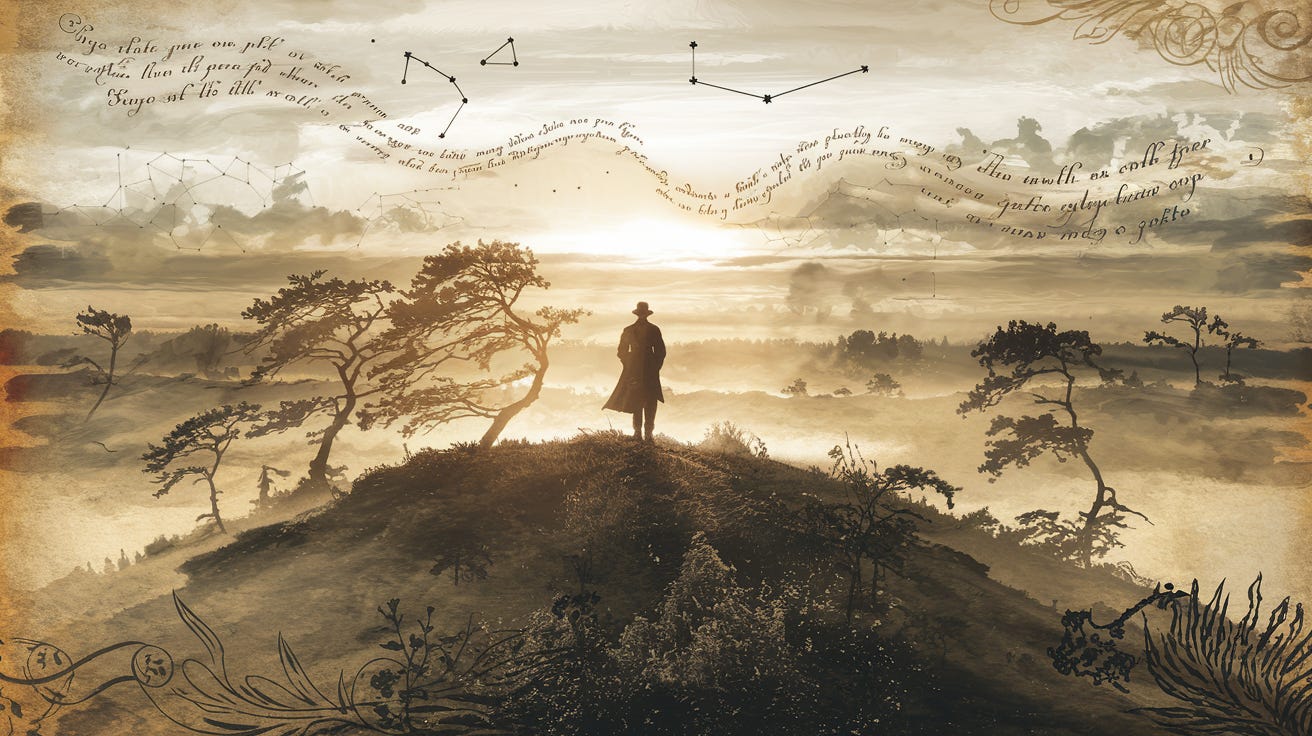

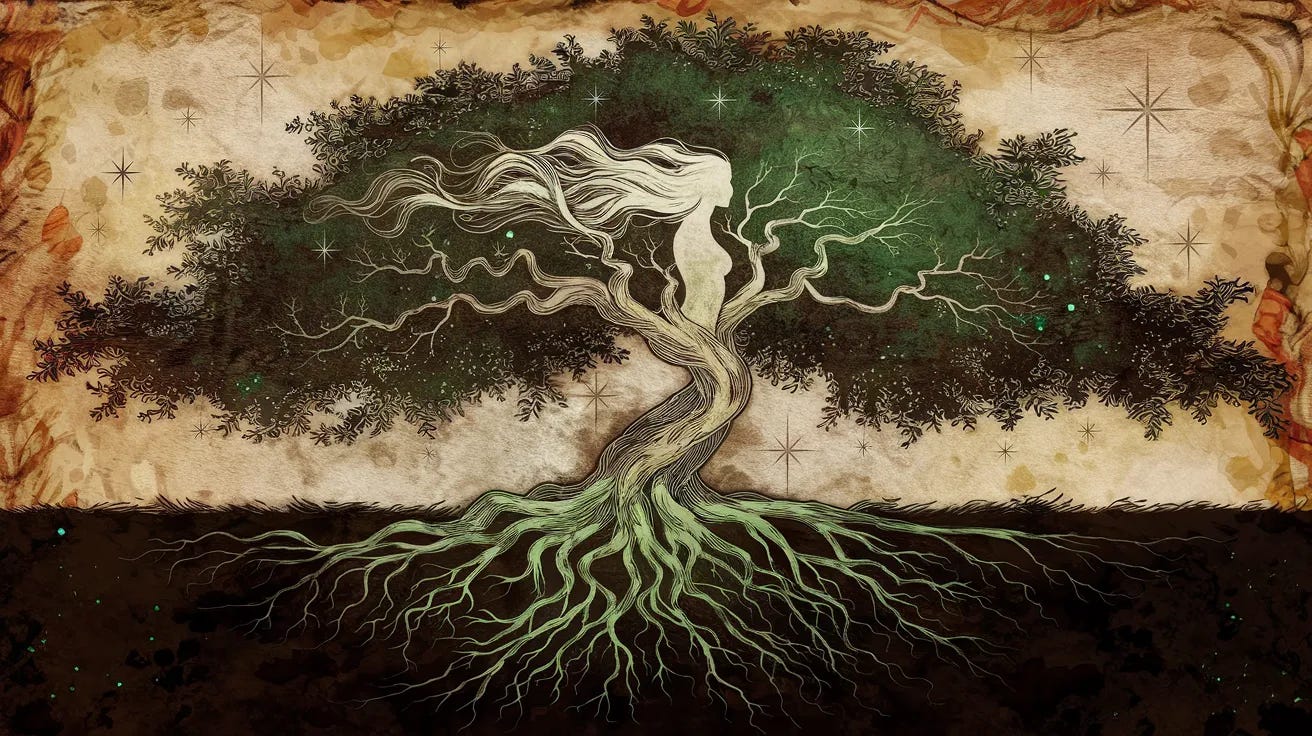

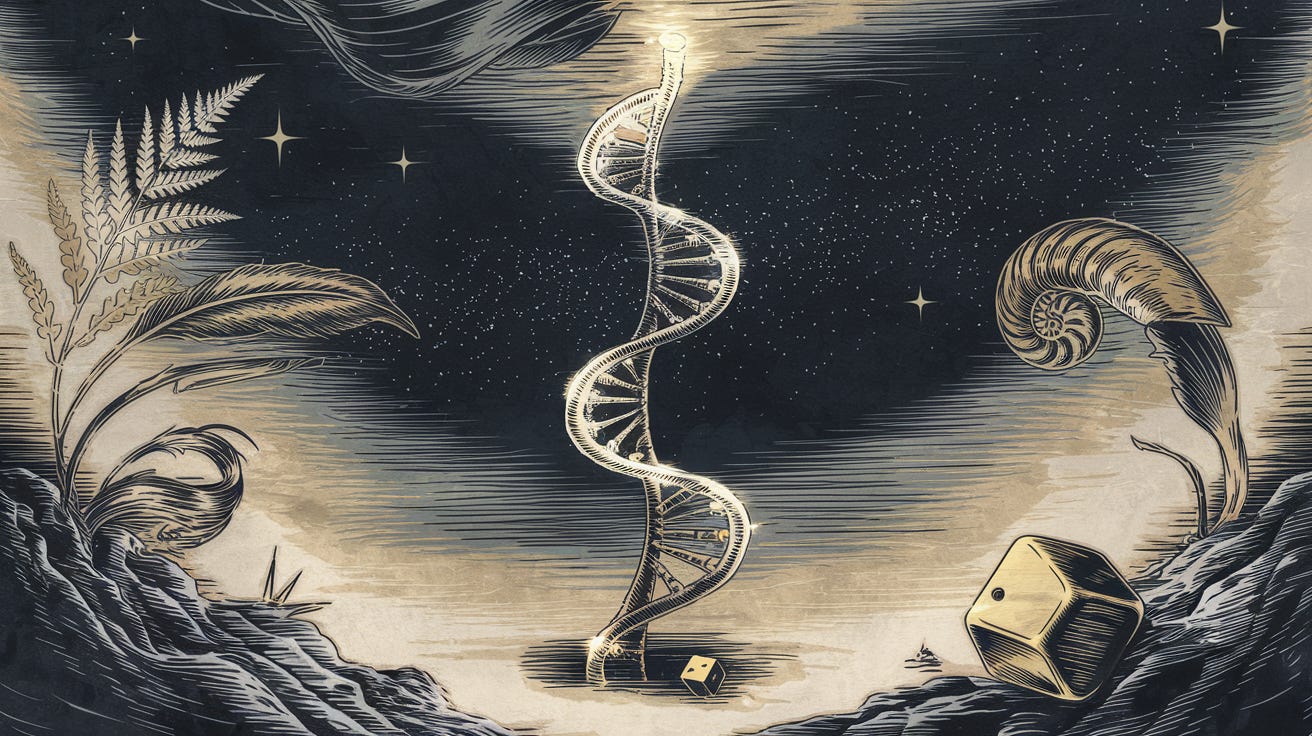

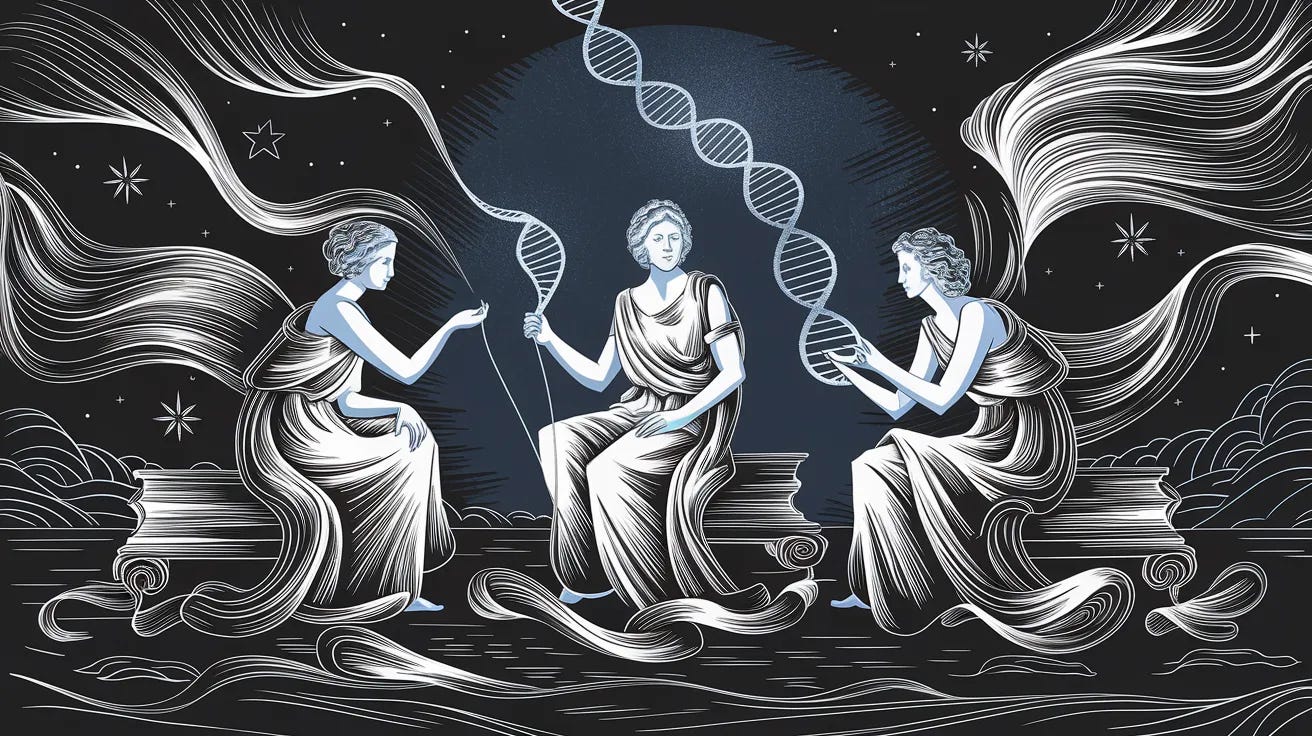

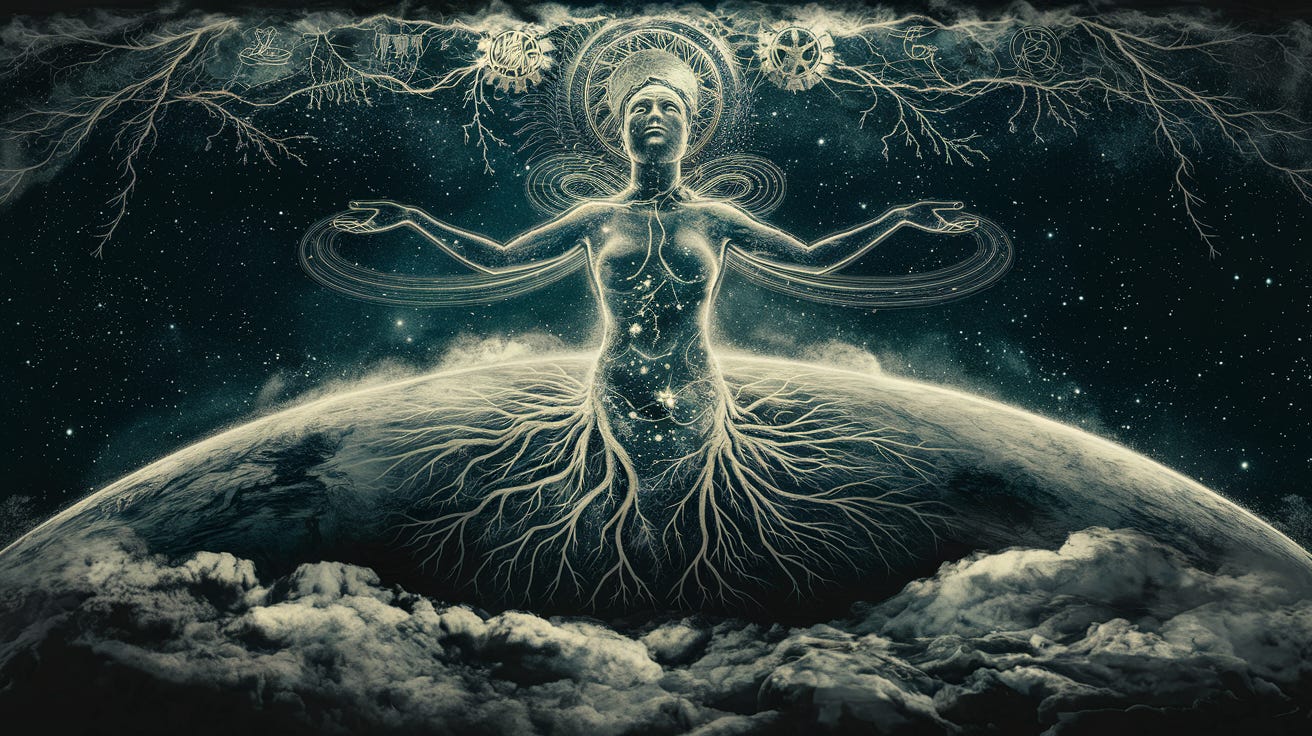
I love this so much. I’m a microbiologist, and I have always felt that studying the living world is a spiritual practice. As I’ve progressed through my career, I lead a small lab now, I’ve come to study symbiotic interactions between our bodies and commensal bacteria. I think a lot about why our culture fixates on materialist ideals. I have never felt conflicted about my animist beliefs and doing science, I’ve never doubted the innate wisdom of life.
I see my work as an act of devotion to life itself. When I was first studying the molecular mechanisms of life, I felt overwhelmed with wonder and awe. The true workings of our cells, what little we know, are far more incredible than any myth humans have ever created. Studying life makes me feel more connected, more alive, than I ever thought possible. I rarely get to talk to other scientists about this, but it’s becoming difficult to keep it to myself.
That’s why I publish here sometimes, I need an outlet for all the wonder that I feel but can’t share in my academic work (yet?).
Thanks for writing this. If people would meditate in the depths of their hearts to identify with the universal Self instead of spinning theories around in their tiny ego-minds, the world would be better off. As you say, Life is beyond either just the Father or just the Mother but inclusive of both. Rupert, you bring light to the world because you don't limit yourself to the intellect, which simply cannot understand or contain or explain Reality.